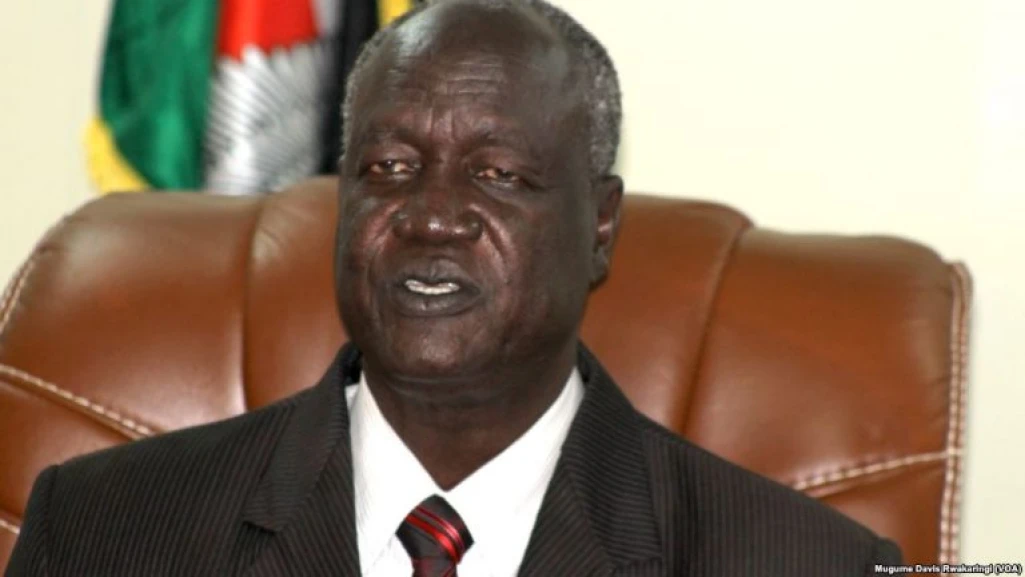
Following Friday's presidential decrees, which saw Kuol Manyang Juuk take over the chairmanship of R-ARCSS from Tut Kew Gatluak Manime, all eyes seeking peace and stability in South Sudan now shift to Kuol Manyang.
Manyang, a senior presidential advisor, government chief
negotiator for the Tumaini peace talks, and now the chairperson of the National
Transitional Committee, will face pressure from the regional and international
community, South Sudanese citizens, and civil society activists.
They will expect expediated progress in both the 2018
Revitalized Peace Agreement and the Tumaini peace talks between the government
and the holdout group.
Civil society activist Edmund Yakani stated that they have been advocating for the reconstitution of the National Transitional Committee, a high-level body responsible for overseeing the implementation of the peace agreement. He noted that Friday's decision to reconstitute it was both overdue and appreciated.
“President have now reconstituted the leadership and the
membership of the NTC. This is a remarkable decision, though it was too much
delayed, but at least we have seen new blood, a new phase is coming to the
National Transitional Committee,” said Yakani.
President Salva Kiir dissolved the National Transitional
Committee on Friday. He removed Tut Kew Gatluak Manime as Chairperson, along
with several other members. The dismissed figures include Deputy Chairperson
Mayik Ayii Deng, Minister of Peacebuilding Stephen Par Kuol, and Minister of
Interior Angelina Teny.
Kiir then reconstituted the NTC with new leadership. The
restructured committee is now chaired by Presidential Advisor Gen. Kuol Manyang
Juuk, with minister of Presidential Affairs Ambassador Chol Mawut Ajongo as
Deputy Chairperson.
Despite his removal from the previous committee, Stephen Par
Kuol has been reinstated as Secretary. Dr. Benjamin Bol Mel has also been added
as a new member.
“We would like to take this opportunity to send a strong
message to the new leadership and membership of the NPTC that the prerogative
and the responsibility for delivering the pending task of the R-ARCSS genuinely
and timely for ending the transitional period in a peaceful manner with the
option of conducting peaceful and credible elections lie under your
responsibility,” Yakani stated.
The dismissal of Tut comes after public criticism of his
handling of funds for the implementation of the 2018 Revitalized Peace
Agreement. This includes failing to pay hotel bills for peace delegates and
mismanaging funds intended for security arrangements.
Recently, hotel owners have taken the National Transitional
Council (NTC) to court, demanding over $60 million from the government for the
accommodation of delegates
“The previous experience of NTC that we have seen, you
should avoid, and experiences are centered on dragging fits and making empty
promises to the citizens with regard to implementation of the pending task of
R-ARCSS for reasons like the unification of the forces and funding of the
mechanisms for delivering the pending task of the R-ARCSS,” he continued.
The revamped NTC will finalize Phase Two of the Security
Arrangement, prepare a comprehensive budget for the remaining phases of the
peace agreement, and report directly to the presidency.
Although Manyang, as senior presidential advisor with the
ability to advise the presidency, had significant influence over peace
implementation, he was not central to the future of the peace agreement.
However, he has now been given full responsibility to
oversee its implementation and ensure that remaining tasks are completed,
leading to free, fair, and credible elections by the end of the transitional
period in 2026.
Besides the 2018 peace agreement, Manyang is also tasked with ensuring the success of the Kenyan-mediated Tunaini peace talks between the government and opposition parties that did not sign the 2018 agreement, where he leads the government delegation, aiming for inclusive and lasting peace in the country.